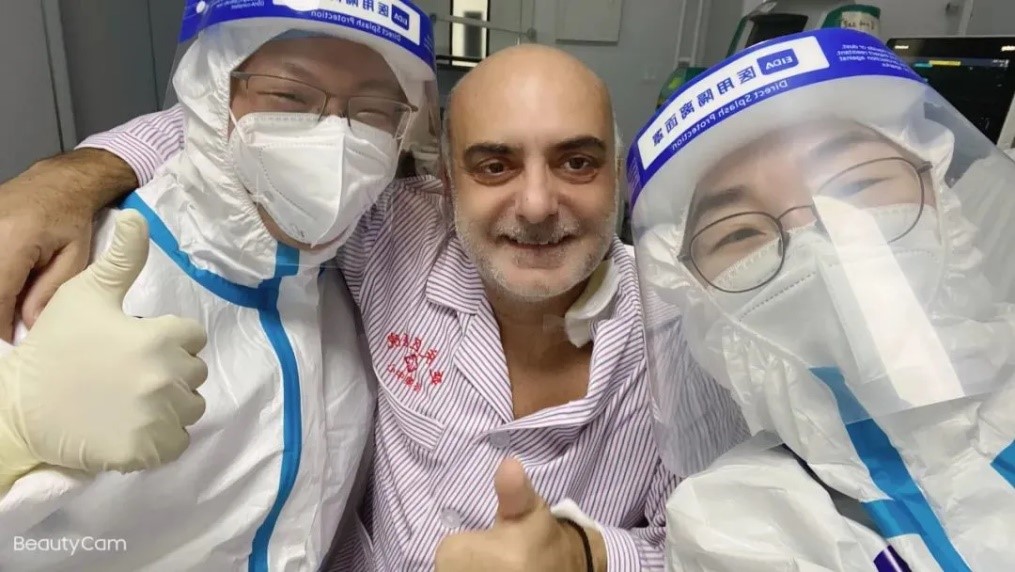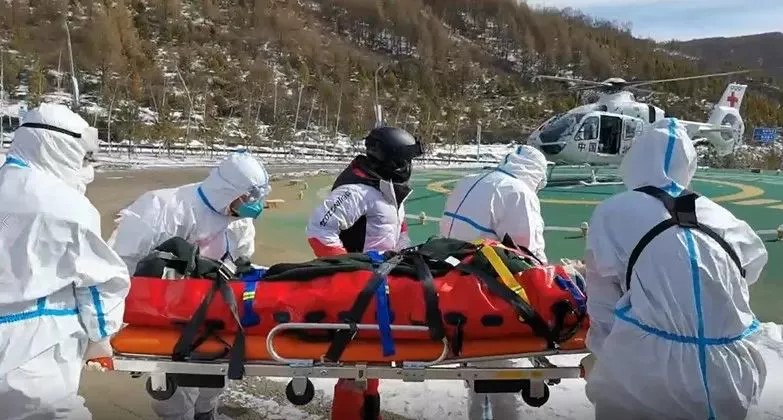[Beijing 2022 Olympics] PKU Hospitals Serve the Olympics Within the Loop and On the Field
Feb 16, 2022
Peking University, February 16, 2022: Peking University Third Hospital has made all-out efforts to provide timely and efficient medical services to all participants in the Beijing 2022 Winter Olympics, ensuring its smooth operation and allowing all athletes to perform at optimal capacity.
Mateusz Sochowicz: Swift recovery from a gruesome injury
On 8 November 2021, Polish luger Mateusz Sochowicz suffered a serious injury during a pre-Games test event, fracturing his left knee cap and sustaining cuts to the bone. In the afternoon of the same day, Sochowicz was rushed to Yanqing Hospital of Peking University Third Hospital in time. Dean Zhou Fang, as the chief trauma expert, personally directed his surgery. Dr Lu Yang, leader of the Winter Olympics medical care team and the Orthopedic Trauma Center, performed a knee fracture fixation surgery.
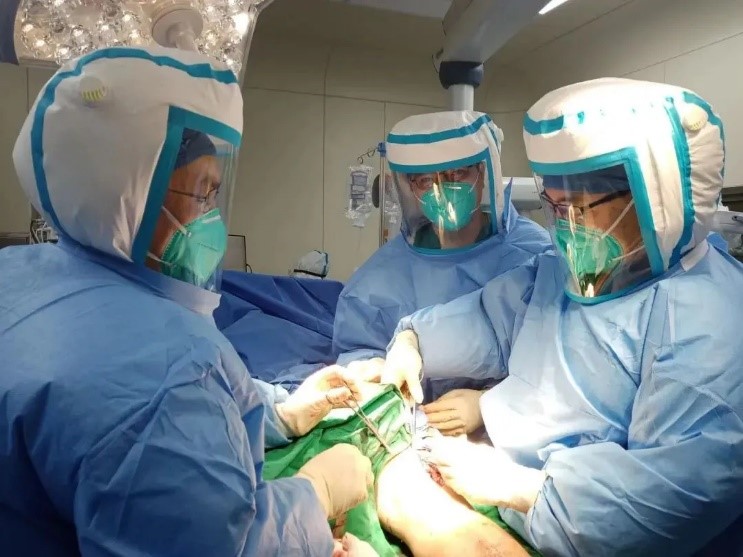 The trauma team at the Safeguarding Center operates on a patient
The trauma team at the Safeguarding Center operates on a patient
“I told him that he could return to the Winter Olympics after the surgery,” said Dean Zhou Fang. With professional expertise and meticulous technique, the team worked to restore the operating capacity of the knee. The medical care team performed professionally and communicated well, helping the athlete gain enough confidence to get back on track.
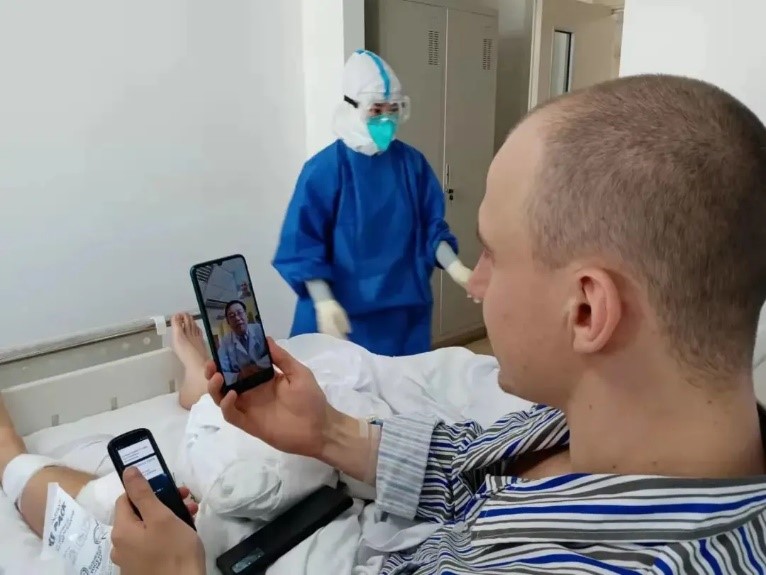 Dean Zhou Fang guides a patient on postoperative recovery through video call
Dean Zhou Fang guides a patient on postoperative recovery through video call
In January, Sochowicz was back in China and later successfully competed in the men’s luge event at the Beijing Winter Olympics. After the game, he returned to the hospital and expressed his heartfelt gratitude to his chief surgeon, Lu Yang. “Chinese doctors are great! Thank you for helping me return to compete.” The two chatted freely and wished each other well.
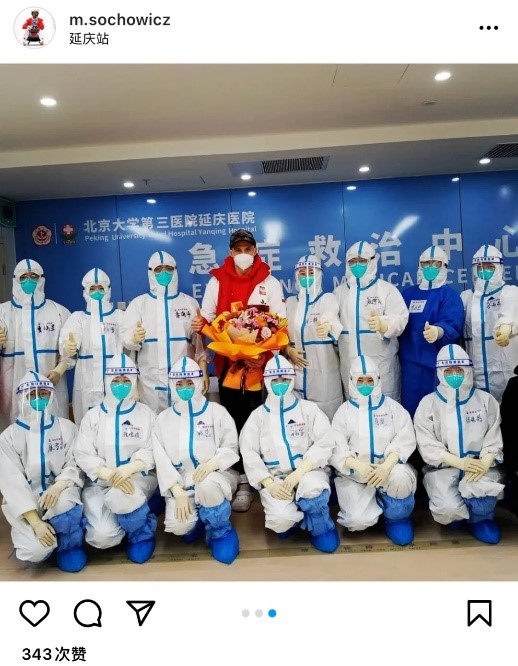 Sochowicz praised the Chinese medical staff on Instagram
Sochowicz praised the Chinese medical staff on Instagram
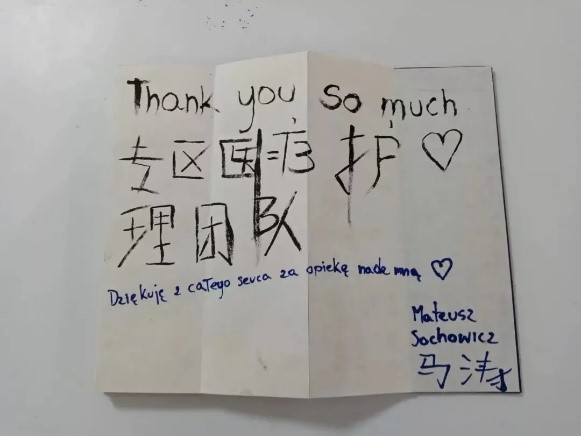 Sochowicz’s handwritten thank you note in Chinese for medical staff
Sochowicz’s handwritten thank you note in Chinese for medical staff
 International media coverage of Sochowicz’s story
International media coverage of Sochowicz’s story
Within the loop: A race against time
On January 31, the afternoon of Chinese New Year's Eve, a foreign technical officer with abdominal pain, vomiting and diarrhea was rushed to the Winter Olympics Support Center of Yanqing Hospital of Peking University Third Hospital. While waiting for the test results, Li Gang observed that although the patient's blood pressure and heart rate were normal, his mouth was dry and thirsty, his limbs were cold, and he had poor urination, showing signs of insufficient microcirculation perfusion in important organs. Hence, Li Gang insisted on further observation and motioned his colleagues to establish intravenous access for the patient and perform nasal cannula oxygen inhalation.
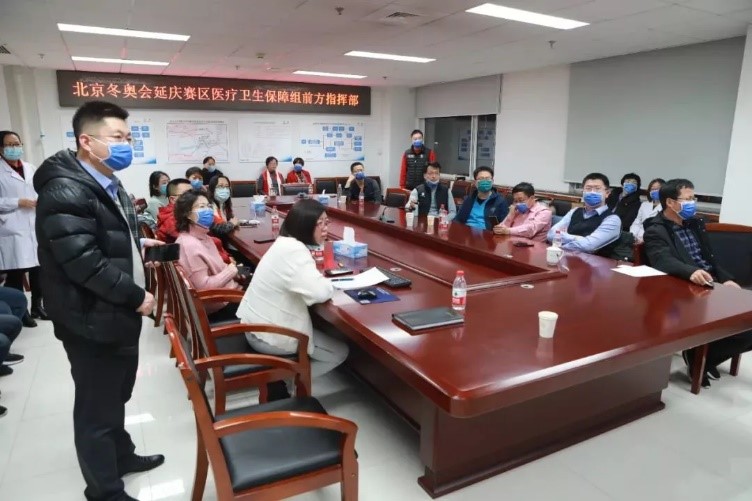
The efficiency of this operation won precious time for the patient, whose condition deteriorated sharply. As hypovolemic shock and acute renal failure occurred, medical staff immediately sent equipment such as hemofiltration machines into the closed loop. Staff within and beyond the closed loop raced against time for rescue. Throughout sleepless nights and maximum effort, after five rounds of expert group discussions and undergoing anti-infection, renal replacement therapy, booster anti-shock and other treatment methods, the patient’s various indicators gradually stabilized.
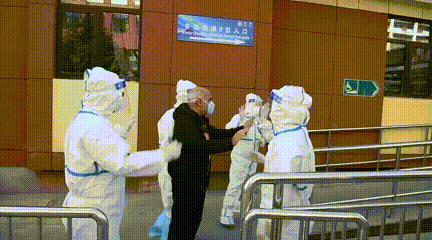
As the doctor-in-charge, Shi Mai of the Critical Care Medicine Department said that the expert group attaches great importance to nutrition and humanistic care. “The patient is not used to eating noodles, so my partner Nurse Jiang Nan and I contacted the cafeteria to prepare Western-style meals with Chinese-style ingredients.” Besides conversing with the patient, Shi Mai also added the patient on social media to introduce treatment plans and share information and pictures related to his family and the Winter Olympics. “After getting along for a few days, the patient calls me ‘favourite’ whenever he sees me, and calls Jiang Nan ‘lovely’.”
On February 6, the patient was successfully discharged from the hospital. Shi Mai and his teammates were sincerely happy, telling his colleagues that this was the best gift they received in the first month of the new year.
Ready for efficient rescue on the field
At 11:35 a.m. on February 7, the Chongli Branch Command Center of Peking University Third Hospital received an instruction from the 999 Helicopter Support Team in the Zhangjiakou Division of the Beijing Red Cross Society, notifying them of an injured athlete. An emergency rescue plan was launched immediately. From the injury report to deployment to the Yunding arena, and then to the emergency room of the Chongli Hospital Trauma Center for treatment, the entire rescue process took less than 20 minutes. The command center, stadium medical station, and transfer helicopter utilized real-time information sharing and visual monitoring to administer high quality treatment at maximum efficiency.
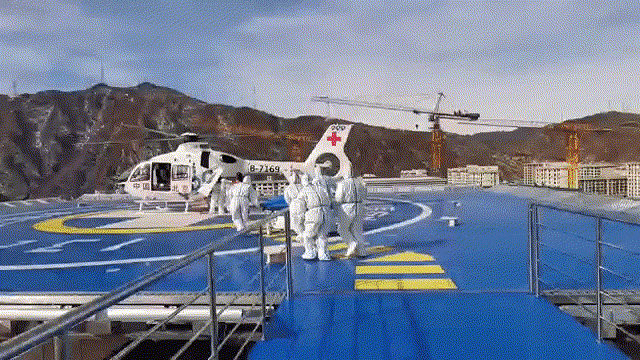
Using the 5G+ prehospital emergency command system, the Winter Olympics medical expert team in the command center transmitted data on vital signs and images through airborne medical equipment (ECG monitoring, mobile ultrasound) before the wounded arrived at the hospital, allowing medical experts in the hospital to acquire a preliminary understanding of the injury. After diagnosis and personalized treatment, the condition of the wounded athlete was then stabilized.
Dun Yuanli: Administering first treatment on the snow
The snow sports of the Winter Olympics, such as alpine skiing and freestyle skiing, require great skill and speed. If an athlete is injured, a ski doctor is required to quickly slide from the slopes to the wounded to assess the injury, carry out first aid and complete the transfer. During the rescue, the doctor has to ski as fast as possible while carrying a first-aid backpack weighing up to 15 kilograms. Therefore, ski doctors must not only be relatively proficient in skiing but also have excellent first aid knowledge and professionalism.
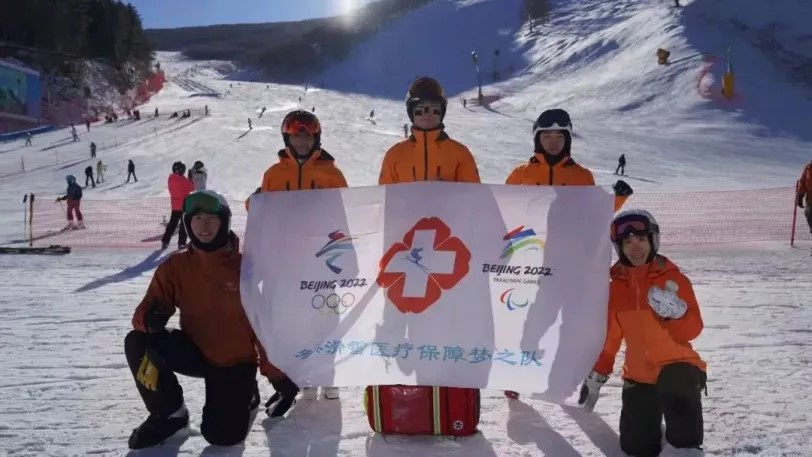 Ski doctors on the racing track
Ski doctors on the racing track
Dun Yuanli of the Anesthesia Department of Peking University Third Hospital has always loved skiing, joining the hospital’s self-initiated ski association established in 2017. In 2018, when she heard that the Beijing Winter Olympics Organizing Committee was recruiting ski doctors, she signed up without hesitation. Dun Yuanli successfully passed the basic skiing skills test, and after more than three years of training, Dun Yuanli was assigned to the Yunding Ski Park in the Zhangjiakou competition area.
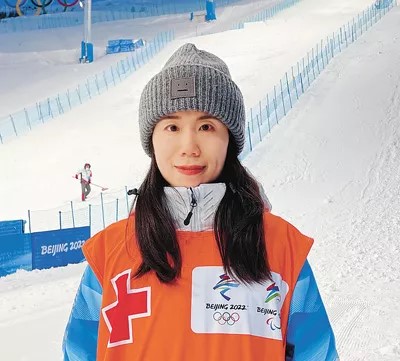 Dun Yuanli in the competition arena
Dun Yuanli in the competition arena
The Winter Olympics Organizing Committee requires that medical staff arrive at the injured athlete within four minutes, but during actual competitions, there may only be one or two minutes for first treatment. As Dun Yuanli says, “We want to transport injured athletes quickly without affecting the competition. Therefore, only after a long period of training and practice can we treat the athletes in time.”
Preparing for the Olympics
During the pandemic, the security work of the Winter Olympics is demanding, and the medical closed loop has also extended from the Olympics stadium to the hospital headquarters. Zhang Tao of Peking University People’s Hospital was appointed as the coordinator of the Winter Olympics closed-loop management in the People's Hospital. He has prepared two mobile phones, one of which is the phone for Olympics work. Every night, Zhang dials the volume of that phone up, ready to respond to any and every call.
In another loop at the Yanqing Olympic Village, Professor Hu Yuelin, an expert from the Institute of Sports Medicine of Peking University Third Hospital, was selected as the medical officer of the village’s general medical clinic. Hu Yuelin has participated in the medical service work of many domestic and international competitions such as the 1990 Beijing Asian Games, the 2004 Asian Cup, and the 2008 Beijing Olympic Games. He has widely used ankle joint technology in the treatment of athletes, helping dozens of high-level athletes such as Ma Long, Zhang Jike, Liu Guozheng, Ye Shiwen, Li Na, Zheng Jie, and Zhao Hongbo return to the field and clinch gold medals.
The general clinic at the Yanqing Olympic Village is far more equipped than a first-class hospital, hosting 18 clinical departments, 3 medical technology departments, 1 pharmacy, and DR cabins, nuclear magnetic cabins and mobile CT vehicles.
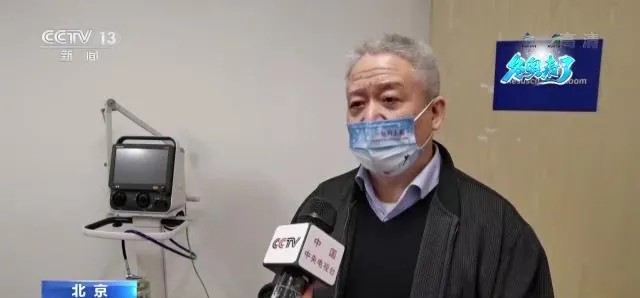 Hu Yuelin in the Yanqing Olympic Village
Hu Yuelin in the Yanqing Olympic Village
The skill and efficiency of the medical care team, composed of more than 900 medical staff from eight affiliated hospitals of Peking University, owe to nearly a thousand days of preparation and dedication. To shorten the treatment time for injuries as much as possible, many doctors in the medical care team have stepped onto the field.
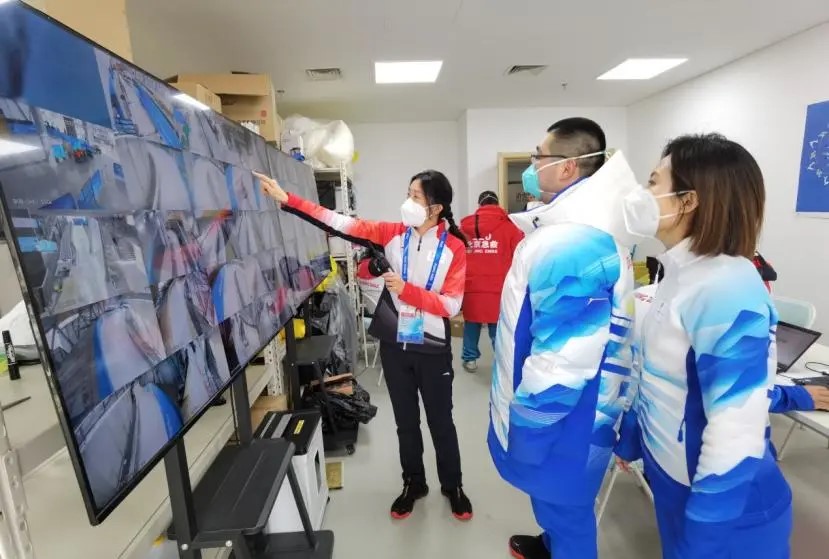 Medical professionals monitoring the racing tracks
Medical professionals monitoring the racing tracks
Compared to the Summer Olympics, the Winter Olympics hosts more unfamiliar events, diverse competitive environments, interpersonal contacts and complicated states of treatment. Dang Yu, chief physician of the Orthopaedic Department at Peking University People’s Hospital, served as the deputy medical officer of the Winter Olympics medical team of the Yanqing National Snowmobile Center. He combined unified training by the Olympic Organizing Committee and his own experience to carry out training within the team. “Medical staff should understand and appreciate the sport they each are responsible for. How can you feel passion for your work if you don’t recognize the speed and skill of the sport? And if you don’t work with a passion, how are you going to do it well?”
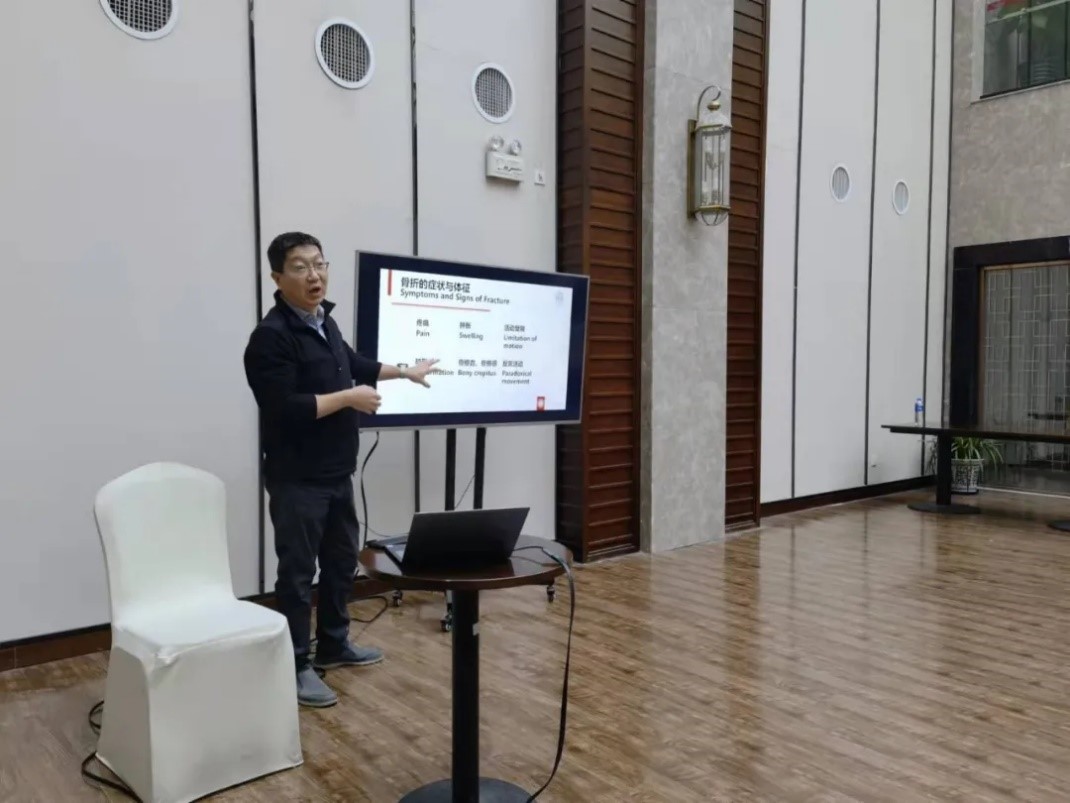 Dang Yu conducts medical training for the team
Dang Yu conducts medical training for the team
Being a Dual Olympic volunteer, Dang Yu is appreciative of China’s rapid development between the two Olympics. Now, before the athletes arrive in China, professionals use big data to grasp basic information and carry out pre-emptive work. In 2019, the National Trauma Medical Center was constructed with the Peking University People’s Hospital at its core, establishing the Chinese standard for trauma and emergency care. In addition, helicopters, the Internet and other technologies have also greatly improved the efficiency and success rates of treatment.
“We can't win shining gold medals, but we can leave a lasting impression of China’s strength and friendliness amongst those who need help.” This is the voice of all Peking University medical practitioners involved in Winter Olympics medical care work, underscoring the warm embrace that China has opened to the world.
Written by: Lean Zhi Xuan
Edited by: Li Wanqi, Hu Shaocong
Source: Peking University (Official WeChat Account)







